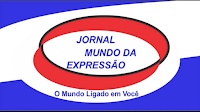Barack Obama as a good lawyer said about the departure of England " If you leave the European Union, theUnited Kingdom goes to" end of the line " as a liberal economist terrible, England always had trading tradition outside groups.
You can negotiate with Russia suffering certain sanctions by this union, or even Brazil, trading goods with various partners giving meaning and never reach agreement, it is better "alone than in bad company."
The US has no customs union tradition, the project FTAA already much has been forgotten.
For it is more advantageous to bilaterai agreements s where you can have a better flexibility in indirect taxes and the newspaper approach - liberalism of John Stuart Mill , always remembering that the government must intervene when educational, health and safety, the tripod Mill.
Taxes on goods are charged to producers, transporters, distributors, are taxes directly imposed on consumer goods: called indirect taxes are paid by a person for an advance to be, as expected, and intends reimbursed by another.
Focus on production within the country, or on imports from outside, or the transport or sale within the country are classified as consumption tax, customs or tolls and transit fees and equals an increase in cost of goods comercializaçãoda.
When cost of production is increased artificially by effect of the tax is the same result of natural effects. If only a few products are affected raise prices, but a good majority is affected the government should suspend taxes to offset the producer and distributor and marketer, here compensation rule for a limited time, until you see the rise of production.
If there is an absurd hence arises lion with his claws, because the gross product of the work consists of two parts: one of her to restore the capital consumed, while the other is profit.
If two companies produce the same no matter the price, but the profit, sometimes a toothpaste costs in company X 1 real in Y 0.90 which gives more taxes if both pay 10 cents the choice is up to the consumer to take X or Y.
However imposes a rate of 20% in both the government is choosing which gives you more profit, X will give 20 cents and 18 cents Y if X will sell more tax increases.
Much is said that a little inflation is good, just go to the public coffers, imagine that X go to 2 reais a month, the government will collect 40 cents, another question why not keep deflation then?
The answer has to pay the bureaucracy, that is, civil servants hence the great dilemma of who does not want to liberalism, Sturt Mill limits liberalism in health workers, education and security, the remaining leave to competition and provides a rate value for the same product.
China and Paraguay do the latter, but without the tripod Mill, Russia is doing plenty education and health and safety and have human capital to spare that can help other partners, there are doctors, high standard of engineers who are idle and Brazil win if companies hire up or negotiate with them.
When it increases the tax or create one increases the value of the goods and who loses is the consumer.There are few cases that the tax increase is not more expensive the goods are in Brazil considering the return of the CPMF that the production chain turns a heap. so Britain is again in traditional liberalism direction, while Brazil and other countries still in the classic Maynard Keynes and Neoliberalism, more Mill for goods to debate and win the consumer, the government will raise even more with the goods out without protectionism, see if pen costs 1 real here and the importer pays 0.40 and sells for 0.90 helps reduce inflation and raises more taxes. We help to keep the independent newspaper without advertising and therefore free in ideas, account of this in the videos.



Nenhum comentário:
Postar um comentário